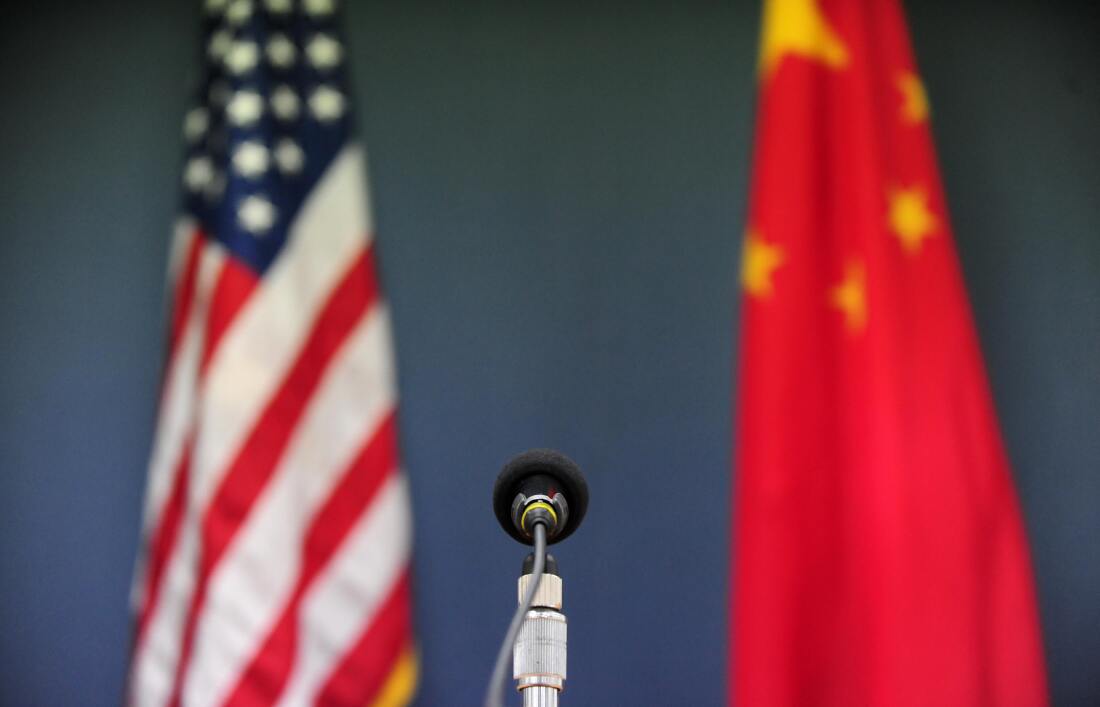
The dialogue between China and the US is increasing.
Frederic J. Brown/AFP via Getty Images
hide description
toggle caption
Frederic J. Brown/AFP via Getty Images
FOSHAN, China – You’d think a businessman like James Cheng would care who elects the president of the United States.
Cheng, 46, owns a Chinese company that makes light equipment that is exported, mainly to America. His large firm is currently placing an order for over 2,000 illuminated bathroom mirrors for a hotel in Las Vegas.
When then-President Trump imposed tariffs on Chinese goods in 2018, many of Cheng’s lamps were hit with 25% tariffs. Trump has promised tariffs of 60% or more on everything made in China during his second term in order to protect American industry and jobs.
“Worrying doesn’t help”
But Cheng just raised his hands. In 2019, he moved some of his production to Bangkok, Thailand, where there were no tariffs. He says many others in this business in China took similar steps.
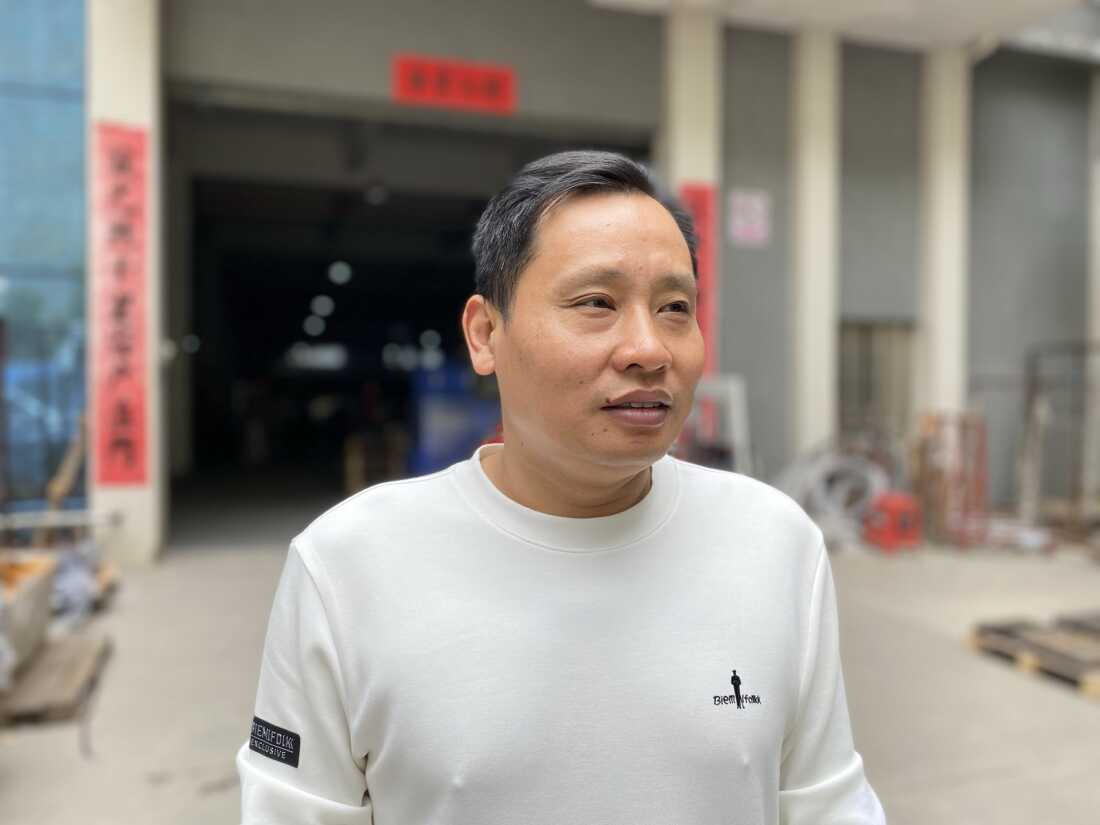
James Cheng moved some of his products to Bangkok, Thailand, to bypass the customs duty.
Owen Cao/NPR
hide description
toggle caption
Owen Cao/NPR
“A 60% tariff would force us to increase investment in factories in Southeast Asia, especially Thailand in my case,” Cheng told NPR at his factory in the southern city of Foshan.
“Whether I export to China, with tariffs included in the consumer price, or to Thailand, where higher costs can result in higher prices, the cost will be borne by US consumers,” he added. saying: “For ordinary people. business owners like us, to worry about [the U.S. president] it doesn’t help anything.”
Beijing ponders what’s to come
For policymakers in Beijing, however, it would be hard not to – at least in business. Rising tariffs could hurt exports, the healthiest part of a previously stagnant economy.
Elsewhere – from Taiwan to technology – the risks and opportunities of a second Trump administration are less clear at this point.
“I am sure that Beijing, like many other cities around the world, is in a pre-emptive security situation,” said Wang Zichen, author of the journal Pekingnology by Substack and a researcher at the China Institute of Globalization, a think tank in Beijing.
Chinese leader Xi Jinping thanked Trump and said he hoped they could get along and cooperate.
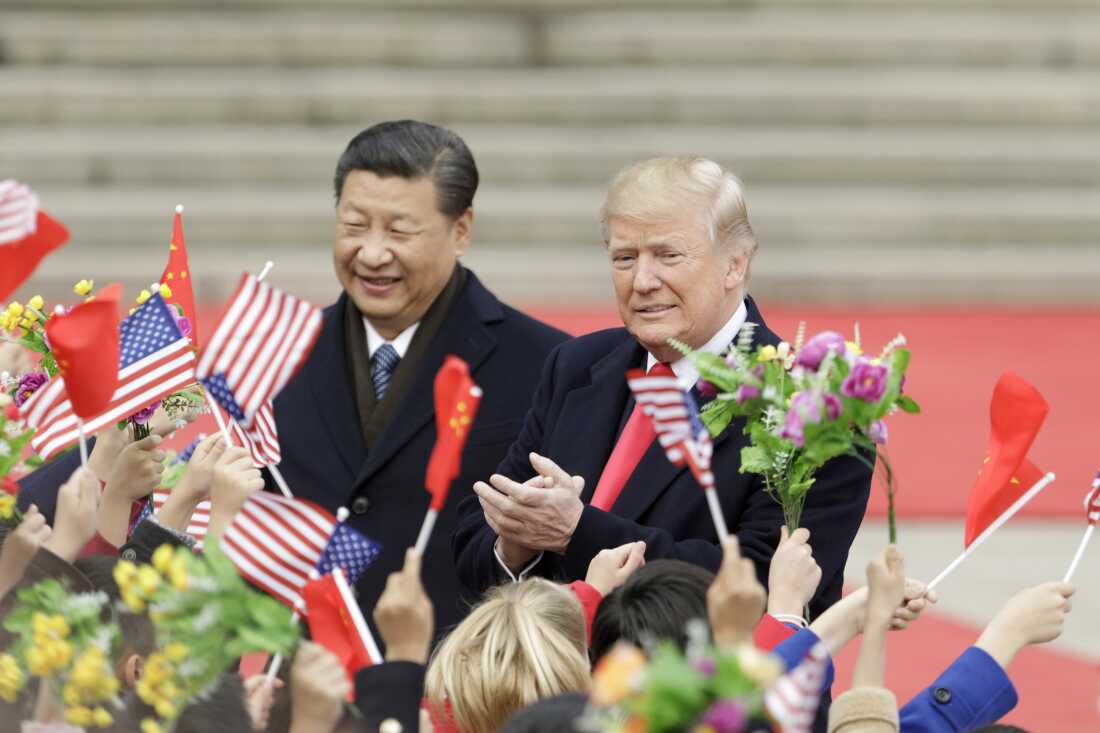
President Donald Trump, right, and Xi Jinping, president of China, greet attendees waving American and Chinese flags during a welcome ceremony outside the Great Hall of the People in Beijing, China, on November 9, 2017. 2017.
Qilai Shen/Bloomberg via Getty Images
hide description
toggle caption
Qilai Shen/Bloomberg via Getty Images
But in business, analysts say Beijing is sending warning signs.
“The Chinese are sending messages through several channels that America should not expect Beijing to play the cautious, measured game that it did in the first trade war,” said Jude Blanchette, an expert on China politics at the Institute. of Policy and. International Studies, Washington.
He said they would feel comfortable using more tools to retaliate, such as devaluation, sanctions on US companies or allies, or measures to worsen US inflation.
“And of course, Beijing has drawn all the congressional districts. They know exactly where the industries are, so if they need to target certain members of congress, they will,” Blanchette added.
Outside of trade, the biggest sticking point in bilateral relations will be Taiwan, an independent democracy that Beijing says is part of China and wants to annex.
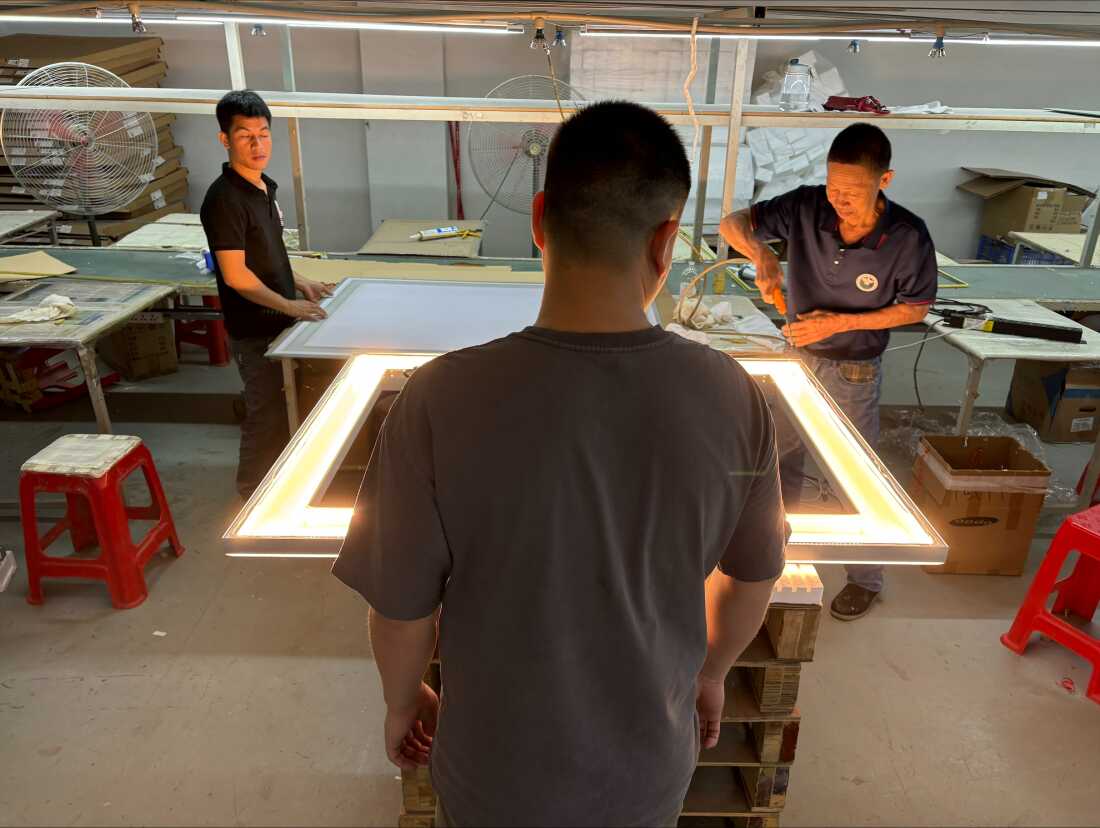
Cheng owns a Chinese company that makes light equipment for export, mainly to America.
John Ruwitch/NPR
hide description
toggle caption
John Ruwitch/NPR
Trump angered China in 2016 by taking a call from Taiwan’s president after his election. This time, Taiwan says there are no phone plans.
On the campaign trail, Trump asked why the US should help Taiwan defend itself. He also suggested that Xi would not dare leave the island because he respects Trump and knows he is crazy, according to an interview with the Wall Street Journal. President Biden, on the other hand, has said four times that the US will help in the event of a Chinese attack.
China’s leaders may also be encouraged by Trump and his running mate JD Vance’s desire to avoid war altogether, analysts told NPR.
Shen Dingli, an independent international relations expert in Shanghai, said: “We don’t know what he’s up to. He wants to sell out, to use his dishonesty to force, to block a big country.”
Shen said Trump may have to reconcile with some in the Republican Party who hold strong views about the US providing clear and strong support for Taiwan.
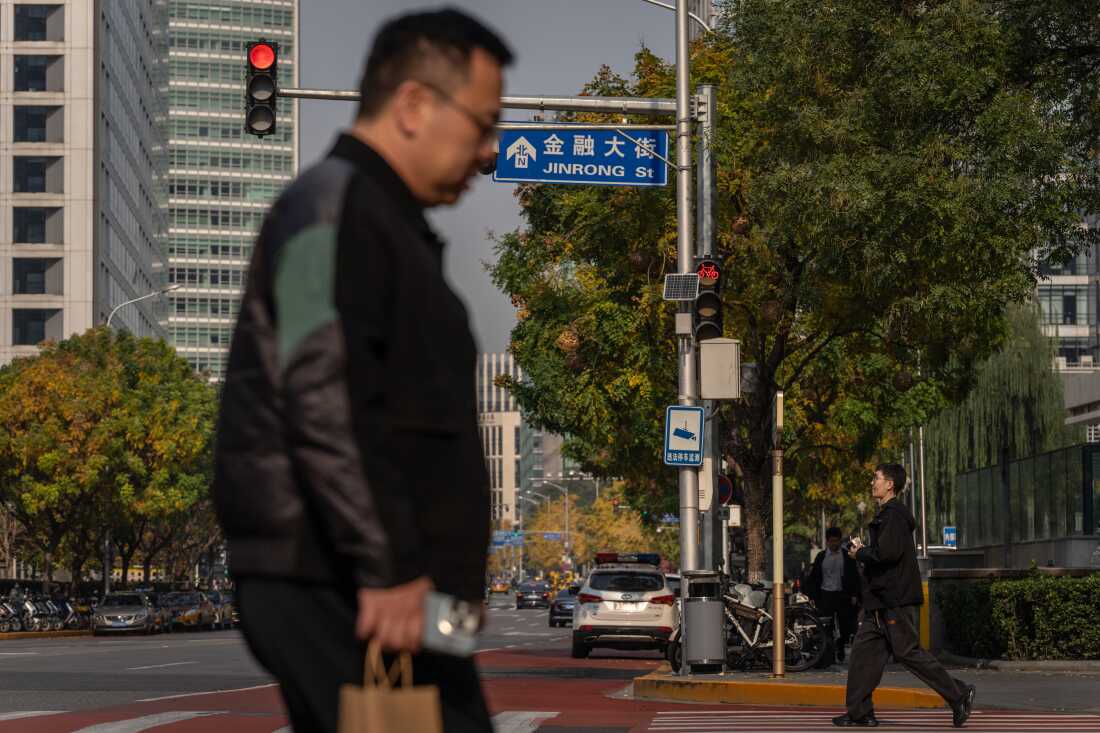
Pedestrians cross the street on Financial Street in Beijing, China, on Thursday. When Donald Trump started a trade war with China in 2018, Beijing found itself on the back foot and unsure how to respond. This time President Xi Jinping is better prepared for battle, although he has a lot to throw at him.
By Bian/Bloomberg via Getty Images
hide description
toggle caption
By Bian/Bloomberg via Getty Images
One example is Trump’s former Secretary of State Mike Pompeo, who some believe is being considered for a job in the new administration. Pompeo has explicitly called for the US to formally recognize Taiwan – a move that could trigger a crisisacross the Taiwan Strait.
Shen says who Trump surrounds himself with will be key.
He says: “Last time I think some of them had problems. I hope you stay away from those violent people in the future. “
For now, Beijing plans to stabilize and hope for the best, according to Wang, of the China and Globalization Institute.
“I think the chances are that President Trump is pragmatic. A lot of people would use the word transaction,” he said.
“The danger is that he is almost unexpected. And that can be very difficult. ”
#Taiwan #technology #China #ponders #whats #Trump